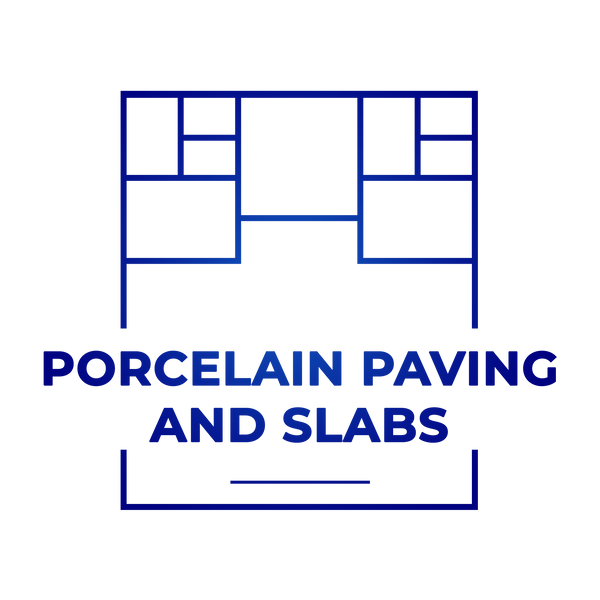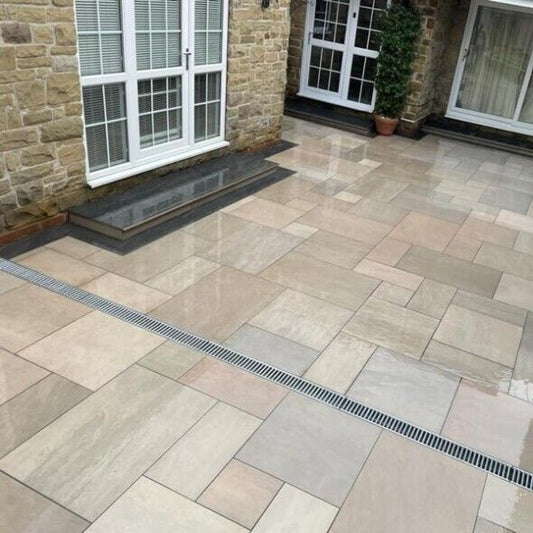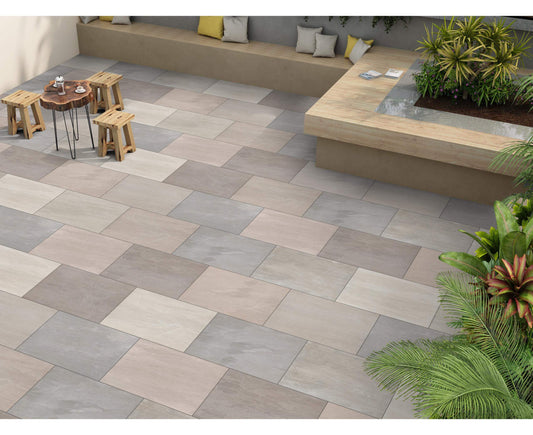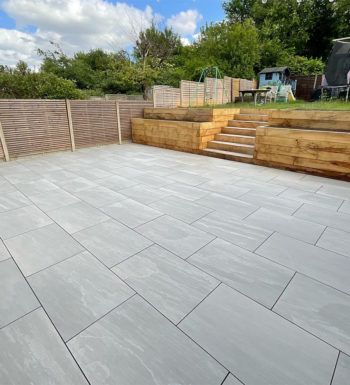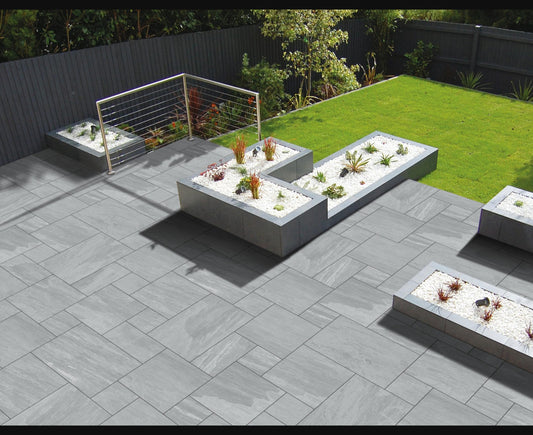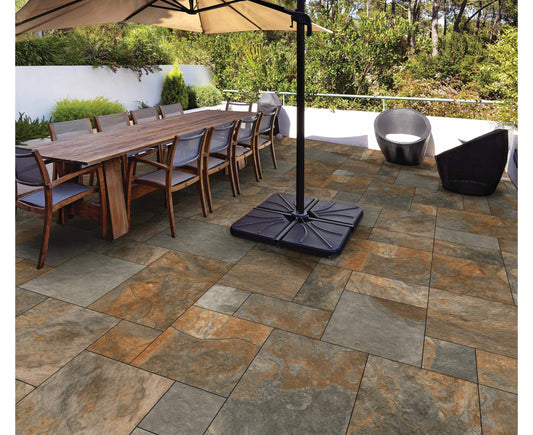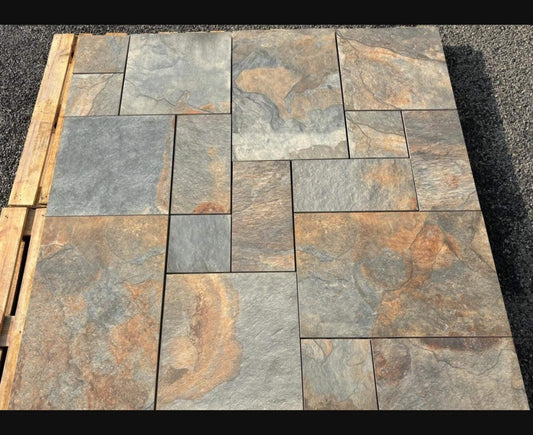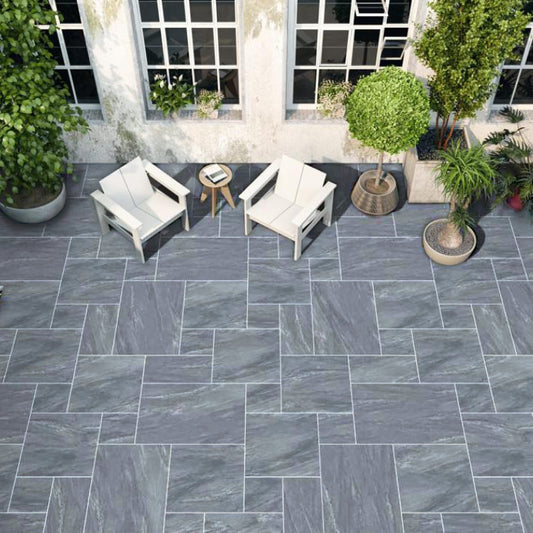-
Heritage Green Patio Slabs
Vendor:Porcelain Paving and SlabsRegular price £549.00 GBPRegular priceUnit price / per£599.00 GBPSale price £549.00 GBPSale -
Kandla Grey Patio Slabs
Vendor:Porcelain Paving and SlabsRegular price £549.00 GBPRegular priceUnit price / per£599.00 GBPSale price £549.00 GBPSale -
Rustic Slate Patio Slabs
Vendor:Porcelain Paving and SlabsRegular price £549.00 GBPRegular priceUnit price / per£599.00 GBPSale price £549.00 GBPSale -
Midnight Grey Patio Slabs
Vendor:Porcelain Paving and SlabsRegular price £549.00 GBPRegular priceUnit price / per£599.00 GBPSale price £549.00 GBPSale
FAQ's
What are paving slabs and where can they be used?
Paving slabs are flat, durable stone or concrete surfaces used for outdoor flooring. These slab pavers are ideal for driveways, walkways, patios, and gardens. Whether you're designing a modern terrace or a classic outdoor path, paving and slabs offer a strong and stylish solution.
What materials are patio slabs made from?
Patio slabs can be made from natural stone, concrete, porcelain, or sandstone. Each material offers unique aesthetics and performance. For example, natural stone provides a timeless look, while concrete paver slabs offer affordability and strength for high-traffic areas.
Are paving slabs suitable for garden patios?
Absolutely. Patio slabs garden applications are very popular for creating attractive, functional outdoor living spaces. These slab pavers are designed to handle outdoor conditions while enhancing the look and usability of your garden or backyard patio.
How do I maintain paving slabs?
Paving slabs are low-maintenance but benefit from occasional cleaning. Sweep off debris regularly and use water with mild detergent to remove dirt or moss. For stubborn stains, pressure washing can be used. Sealing patio slabs also helps maintain colour and prevent moisture absorption.
Can I install paver slabs myself?
Yes, many homeowners choose DIY installation for paver slabs. With basic tools and a solid sub-base, you can lay patio slabs for driveways, paths, or garden patios. For larger or more complex layouts, hiring a professional may ensure a more durable finish.
What is composite fencing and how does it compare to traditional wood fencing?
Composite fencing is a durable and low-maintenance alternative to traditional wood fencing, made from a combination of recycled plastic and wood fibres, also known as artificial lumber. Unlike timber, composite fencing boards are resistant to rot, insects, warping, and weather damage. These fencing boards offer the natural appearance of wood without the need for painting or staining. Whether you're enclosing a garden, securing a boundary, or enhancing privacy, composite fencing provides a long-lasting, eco-friendly solution with minimal upkeep.
Are composite decking boards resistant to insects and mold?
Yes. One of the key benefits of composite decking boards is their resistance to insects, mold, and mildew. The durable artificial lumber core does not provide a food source for pests and won’t absorb water like wood.
How environmentally friendly is composite decking?
Composite decking is an excellent eco-conscious choice. It uses artificial lumber made from recycled wood and plastic, diverting waste from landfills. Additionally, it reduces the need for timber harvesting and frequent chemical treatments associated with wood decking boards.
